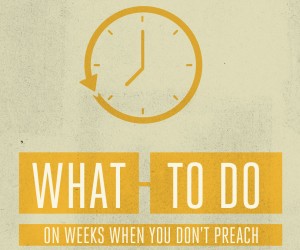‘And they were astonished beyond measure, saying, “He has done all things well. He even makes the deaf hear and the mute speak.’” – Mark 7:37
One of my favorite things to do at the end of each year is peruse the proliferation of “Best of . . .” lists that shows up all over the place. One list, hands down, always captures my attention more than any other; the “Best Pictures of . . .” list. So it was with great excitement and expectation that I recently clicked on “The 1oo Most Astonishing Images of 2013.” I can still picture the Korean satellite image of Namibian sands, the hurricane whirling around on Saturn, Devil’s Tower underneath the night sky, and the wings of a butterfly under a microscope.
There is something compelling about astonishment. It invites the soul to stop, sit, stare, and wonder.
ASTONISHMENT AT JESUS
Astonishment was a normal reaction to the person and work of Jesus. In Mark 7 after healing a deaf and dumb man, the gospel writer records that the crowds “were astonished beyond measure, saying, ‘He has done all things well. He even makes the deaf hear and the mute speak.'”
The Greek word here for astonishment is ἐκπλήσσω, and more literally means “being struck out of one’s mind.” Mark had to invent a word (ὑπερπερισσῶς) to describe the extent of the people’s astonishment as they were amazed “beyond measure.”
When was the last time Jesus blew your mind beyond measure?
ASTONISHMENT THROUGH FAMILIARITY
There is, I think, an unusually potent application this question has for pastors and preachers. The enemy to astonishment is familiarity. You will never be astonished by something you are familiar with, it will just be common. But here’s the tension for ministers: they must be familiar with God’s word. So much so that we even have an apostolic encouragement to that end, “Do your best to present yourself to God as one approved, a worker who has no need to be ashamed, rightly handling the word of truth” (2 Tim. 2:15).
The truth we confess about God and His word protects us from the normal antagonism familiarity has for astonishment. In the economy of God it seems like familiarity is a friend, not foe, to astonishment. This makes sense when you consider that familiarity with God is knowledge of an incomprehensible being whose greatness is unsearchable (Psa. 145:3). Even the Christ we preach is a treasure trove of unsearchable riches (Eph. 3:8).
Could it be, paradoxically, that familiarity with God is actually a God-ordained means to astonishment with God? It sure seems to be the pattern of Paul. Scour his letters and notice how often he breaks out in doxology, in astonishment. Here’s a quick sampling:
- “The Creator, who is blessed forever. Amen.” (Rom. 1:25)
- “Christ…is over all, God blessed for ever. Amen.” (Rom. 9:5)
- “Him…to whom be glory forever. Amen” (Rom. 11:36)
- “To God only wise, be glory through Jesus Christ for ever. Amen.” (Rom. 16:25-27)
- “Now…Unto him be glory in the church, and in Christ Jesus throughout all generations, forever and ever. Amen.” (Eph. 3:20-21)
- “Now unto God and our Father be glory forever and ever. Amen.” (Phil. 4:20)
- “Now unto the King eternal, immortal, invisible, the only wise God, be honor and glory forever and ever. Amen.” (1 Tim. 1:17)
- “Our Lord Jesus Christ…the blessed and only Sovereign, the King of kings, and Lord of lords…to whom be honor and power everlasting. Amen.” (1 Tim. 6:14-16)
- “The Lord…to whom be glory forever and ever. Amen.” (2 Tim. 4:18)
That Paul was familiar with God’s glory in Christ is something no pastor can deny. One recent Pauline theology is even titled “Paul, Apostle of God’s Glory in Christ!” That, however, this familiarity with God’s glory in Christ was an enemy to astonishment is something we must patently deny.
Familiarity with Christ is the means of astonishment at Christ.
THE PASTOR’S ASTONISHMENT
I know this truth has born itself in my life. Every time I seek to memorize a book of the Bible I am continually amazed and astonished at the God worthy of all glory. A deeper familiarity with God’s word only increases my amazement at the Incarnate Word.
What implications might this then have for the pastor’s preaching ministry? I see two . . .
- Aim to preach with astonishment. If familiarity brings astonishment then your sermon prep should be marked by the plea of the old divines who cried, “More light, more light.” Light comes before heat. Doxological preaching will rarely, if ever, come apart from agonizing labor in God’s word.
- Aim to preach for astonishment. In our preaching we want to see heads, hearts, and hands moved “beyond measure” at the glorious God the glorious word proclaims. You want them to experience the praise you experienced from the text. Open the text clearly, yet boldly, and watch the Spirit’s fire fall.
Astonishment is compelling and it comes from a deep dive into the word. Pursue astonishment at all costs and find that your ministry will never be the same.








